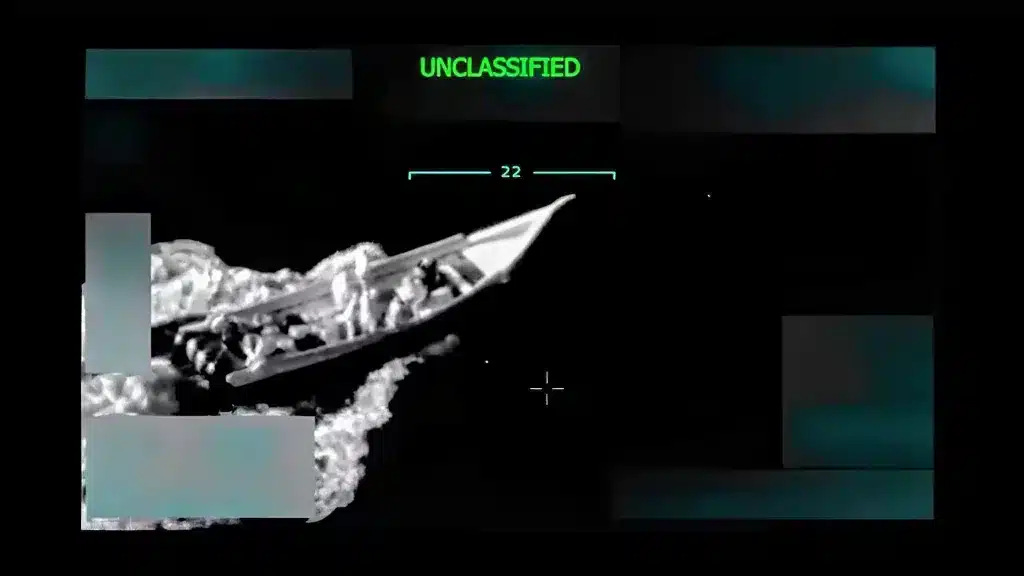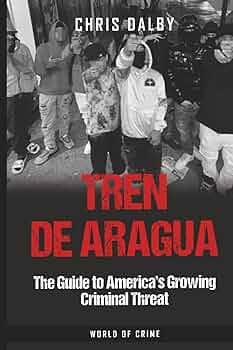Why President Trump is Turning the War on Drugs into the War on Terror
The U.S. has used the flimsiest of allegations to kill 11 men in the Caribbean withhout warning. This may be the first of many such strikes.
Well, this was clearly coming. From the moment President Donald Trump ordered a US strike force into the Caribbean in August, it seemed likely he would make use of it.
On September 2, Trump and Secretary of State Marco Rubio revealed that an alleged “go-fast boat having left Venezuela carrying cocaine was blown out of the water, killing 11 on board. The president said these were members of Tren de Aragua.
While predictable, this marks the most dramatic shift in the U.S'.’ war on drugs in well over a generation. The move will be applauded by anti-crime hardliners and cause alarm among regional leaders.
But was it the right move? Here are a few aspects to consider:
Do seizures work as a deterrent?
Drug seizures at sea are higher than ever.
On August 26, the U.S. Coast Guard offloaded in Florida 34 tons of cocaine and marijuana caught over the summer, worth a combined half a billion dollars. These were made across 19 seizures near the Galapagos Islands of Ecuador, the coast of Venezuela, Mexico, the Dominican Republican, Jamaica and Aruba.
Ordinarily, the Venezuelan boat destroyed this week would have been seized and its crew arrested.
But despite decades of seizures, record quantities of cocaine and other drugs continue to reach U.S. streets. In June, the UNODC World Drug Report 2025 stated that “production, seizures, and use of cocaine all hit new highs in 2023,” the last year for which full data is available.
So Trump’s rationale is that this shift is to ramp up deterrence. President Trump characterized the targets as “terrorists…heading to the United States” and warned, “let this serve as notice to anybody even thinking about bringing drugs into the United States… BEWARE!” . The administration clearly hopes that the shock of seeing a drug boat blown up will scare trafficking networks into thinking twice.
Should the War on Drugs adopt War on Terror tactics?
As Secretary of State Marco Rubio put it, the Trump administration is “adopting a war footing against drug cartels.” In January, Trump named the Sinaloa Cartel, the Jalisco Cartel New Generation, Tren de Aragua, and MS-13 as foreign terrorist organizations (FTOs).
This terror designation, usually reserved for ideologically motivated groups like Al-Qaeda, dramatically lowered the threshold for using military force.
The strike on the Venezuelan boat is a symptom of this policy shift. It coincides with a broader militarization of anti-drug efforts.
Over the past month, the U.S. has surged eight warships, including destroyers, an amphibious assault ship, and even a nuclear-powered submarine, into the Caribbean and eastern Pacific waters near Latin America . Ostensibly an “enhanced counter-narcotics operation,” this unprecedented naval deployment has put regional governments on edge.
American destroyers now prowl waters they haven’t in decades, equipped with missiles and carrying Coast Guard law enforcement teams.
The Pentagon has been drawing up contingency plans ranging from missile strikes on cartel targets to partnering with local forces for raids, unsettling Mexico and Venezuela in particular.
Administration officials claim these moves are necessary to combat what they call the “narco-terror” threat from Venezuela and other nations.
They accuse Venezuelan President Nicolás Maduro of “running a drug cartel” himself, specifically, the so-called Cartel de los Soles composed of elements of his regime. The U.S. Treasury has even doubled the bounty on Maduro’s head to $50 million .
Trump’s team insists, without clear evidence, that Maduro is using gangs like Tren de Aragua to destabilize the U.S. with drugs.
President Trump claims to have blown up 11 terrorists from Tren de Aragua transporting drugs. This is almost certainly untrue. To help you fully understand the group, World of Crime’s Guide to Tren de Aragua is on sale on Amazon here.
This was very unlikely to have been Tren de Aragua
The U.S. administration habitually exaggerates or outright manufactures claims about Venezuelan organized crime.
In this instance, Trump stated that the 11 men killed on the boat were members of Tren de Aragua. As I explained in Tren de Aragua - The Guide to America’s Growing Criminal Threat, there is next to no evidence showing that Tren de Aragua participates in the international cocaine trade in such a manner.
The gang absolutely sells drugs locally and in a more opportunistic manner, but has intentionally stayed away from competing with Mexican and Colombian groups, and their associates, who dominate the Caribbean cocaine route.
That Trump could so casually mention the group without providing a shred of evidence is highly worrying. The name of Tren de Aragua has been used as justification for all sorts of detentions, incarcerations, and deportations of Venezuelans in the U.S.
It is now being used as justification to kill people.
Has the U.S. done this before?
The 11 individuals on the boat were never identified or proven guilty in any court. They were executed based on intelligence that might be faulty. In fact, the grainy strike video shows no clear sign of drugs on board, and the White House has not explained how it “positively identified” the crew as gang members.
There is zero transparency about who was killed. Most likely, they were low-level couriers.
This sets a troubling precedent for the use of extrajudicial violence and history shows the danger of misidentification in drug war operations.
In 2001, a U.S.-assisted interdiction in Peru tragically shot down a civilian plane, killing an American missionary and her infant when they were mistaken for traffickers. Similarly, in 2012, a joint DEA-Honduran raid fired on a river boat in Honduras, only later revealing it was a passenger ferry, killing four innocent villagers .
By taking a military strike approach, the U.S. risks repeating such grave errors on the high seas or foreign soil, potentially killing civilians or allies by mistake.



